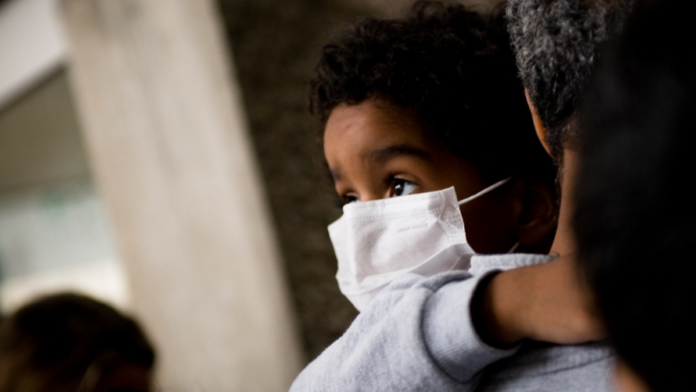The battle over oil and gas regulations at the Colorado legislature could be swayed by a forthcoming multi-year study of human health effects from oil and gas production from Colorado’s public health officials and a top state university that should be published before the end of the current legislative session, according to agency officials.
On Wednesday, Democratic legislators at the Colorado General Assembly promised “probably the most meaningful reform” on oil and gas issues with legislation they expect to introduce as early as next month.
The expected study from the state’s public health agency has been delayed at least twice in the past year but could play a pivotal role in the passage–or defeat–of any legislative proposal introduced by the Democratic majority at the Colorado State Capitol this session, and will be widely discussed in shaping the state’s regulatory landscape for many years to come.
A former Colorado Department of Public Health and Environment official told Western Wire the planned health risk assessment study would be available in peer-reviewed publications by the end of the 1st quarter of 2019, or the end of March.
That study was intended as a follow up to its previous work, released in February 2017, that looked at 10,000 air samples and analyzed 12 epidemiological studies covering more than two dozen health effects.
CDPHE’s 2017 “Assessment of Potential Public Health Effects from Oil and Gas Operations in Colorado” received little attention until 2018, when the issue of health and safety entered the debate over a proposed setback ballot initiative.
That study found “[a]ll measured air concentrations were below short- and long-term ‘safe’ levels of exposure for non-cancer health effects, even for sensitive populations,” CDPHE authors wrote. “Overall, available air monitoring data suggest low risk of harmful health effects from combined exposure to all substances.”
CDPHE’s analysis of related health studies found that most were “low quality, primarily due to limitations of the study designs that make it difficult to establish clear links between exposures to substances emitted directly from oil and gas and the outcomes evaluated.”
Among its 2017 recommendations was an additional analysis of human health effects, which it hoped to release the following year, based on ongoing and completed data gathering by one of the state’s top schools.
Colorado State University, working with the state’s health department and top medical officials, expected the report to originally be completed by summer 2018, according to a CSU release in 2016 and the recommendations in the February 2017 CDPHE report.
“Continued evaluation of health risk using more comprehensive exposure data such as data from the Colorado State University studies that directly measured emissions of substances from oil and gas operations in Garfield County and the north Front Range and data collected by the Colorado Air Mobile Monitoring Laboratory” would constitute the final report.
Dr. Larry Wolk, formerly the Chief Medical Officer and Executive Director of CDPHE, wrote last April, “A detailed risk assessment is currently being conducted using more comprehensive data collected by CSU researchers on substances directly emitted from oil and gas operations… The findings of this risk assessment will be submitted for a peer-reviewed publication this summer.”
Last July Western Wire reached out to CDPHE to check the progress of the delayed report, which according to Mark Salley, former Communications Director for the agency, said at the time the study was not expected until Fall 2018, after peer-reviewing could be completed.
“It will be sometime in the fall as we will be submitting for peer review prior to releasing the study information,” Salley wrote on July 23rd, 2018.
However, the long-delayed study did not emerge during the contentious midterm election, where an activists’ proposal to increase setbacks on new wells engaged the oil and gas industry, and included concerns over health and safety.
An open records request was denied in October 2018, even though the study has been completed.
In a follow up email response to another Western Wire inquiry on January 10th, Salley said the CDPHE report would be available by the end of March, but that site-specific reports were already currently publicly available.
“We expect the next CDPHE health risk assessment to be available in peer review publications by end of first quarter (March) 2019. Reports of our site-specific exposure investigations are publicly
available: https://www.colorado.gov/pacific/cdphe/oil-and-gas-community-investigations,” Salley wrote.
That includes reports of robust monitoring in response to citizens’ concerns called for in the 2017 CDPHE report.
“Continued citizen reporting of health concerns to the CDPHE Oil and Gas Health Information and Response Program to monitor for trends in health effects that may be related to exposure,” CDPHE authors wrote.
Among those OGHIR field reports, for example, is one from April 2018. Similar to the other nine investigations that have heavily focused on Weld County, the state’s top oil and gas producing county, CDPHE officials have repeatedly found measurements of air concentrations for “60 substances analyzed… were below short- and long-term health based reference values and approximately the same as the average air concentrations along the Front Range.”
“Based on the results from this preliminary air sampling investigation,” the OGHIR authors continued, “there appears to be a low risk for harmful health effects due to exposures from VOCs.”

